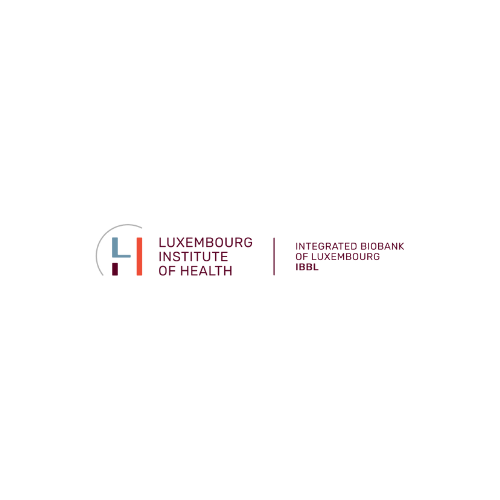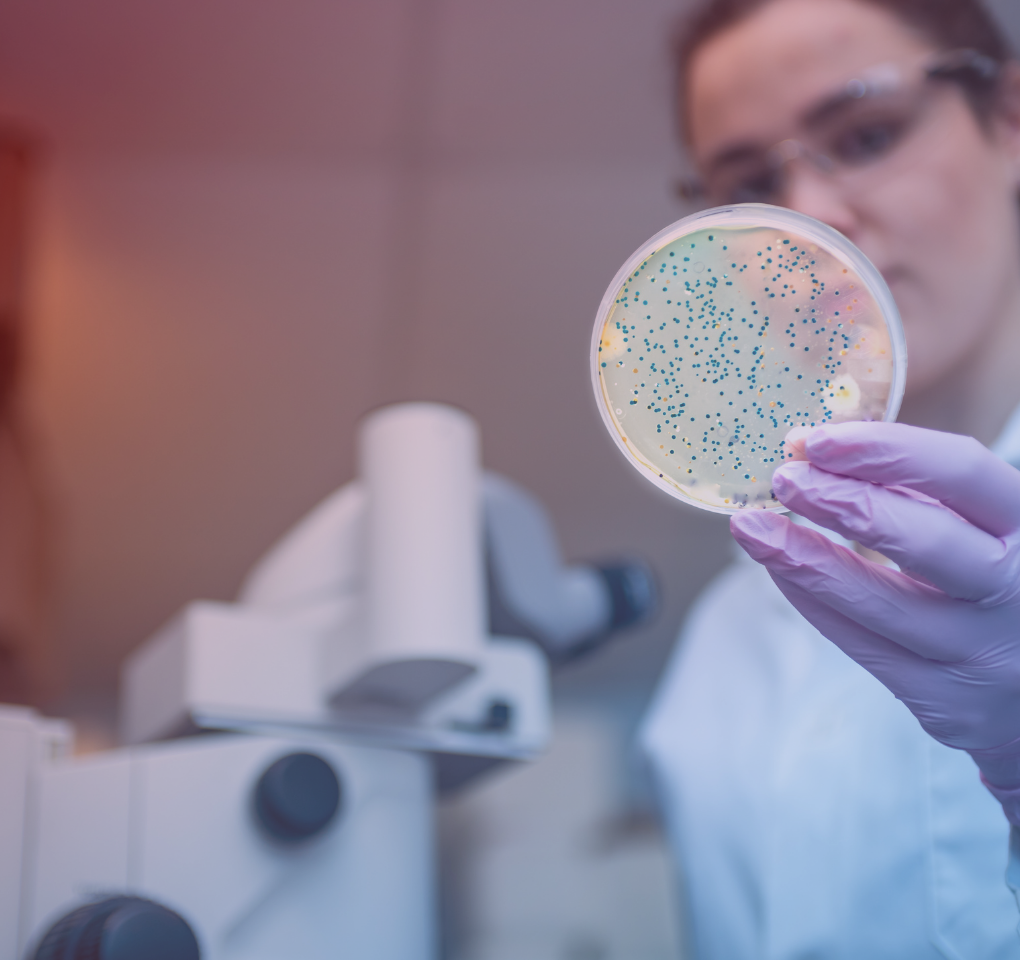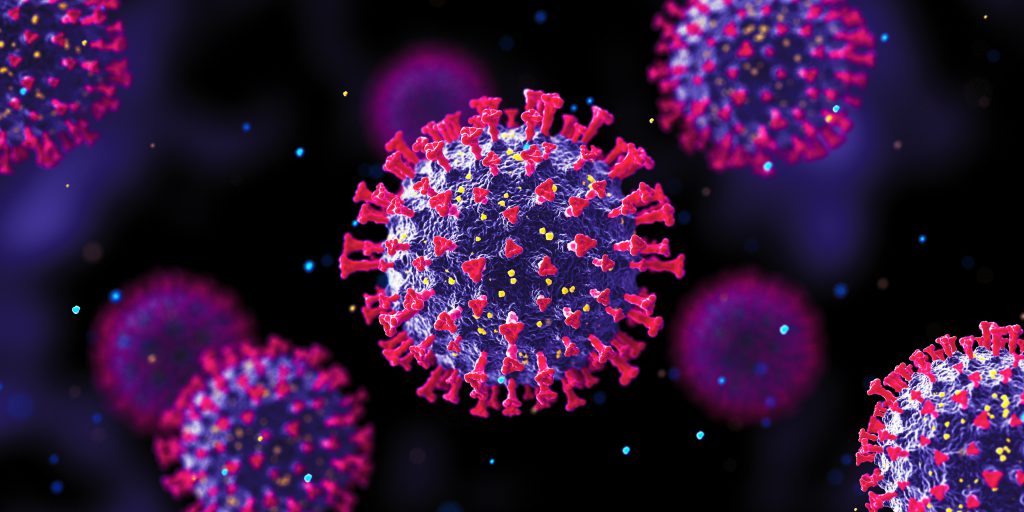Long COVID – CoVaLux
COVID-19, Vaccination & Long-term health consequences of COVID-19 in Luxembourg: a comprehensive research framework study aimed at addressing key unanswered questions related to COVID-19, focusing specifically on vaccination and on the long-term health impact of COVID-19.
Despite the worldwide COVID-19 pandemic entering its second year, open questions pertaining to the occurrence of new variants, ensuing new waves, vaccination effectiveness and immune responses remain to be elucidated.
In addition, more than 25,000 individuals in Luxembourg are estimated to be affected by Long COVID, an emerging long-term medical condition characterised by persisting COVID-19 related symptoms. All of these factors highlight the importance of looking at the pandemic from a broader perspective. The aim is to assess whether we need to optimise current strategies for prioritising vaccination in view Long COVID, while analysing the impact of vaccination on individual and population-level outcomes.
How does the project address the COVID-19 crisis?
CoVaLux addresses the public health emergency raised by Long COVID by building a national research framework. It will build on previous national studies, e.g. PREDI-COVID, COVA-LUX, ORCHESTRA and Colive COVID, as a basis for tackling research questions surrounding Long COVID as well as the impact of vaccination against SARS-CoV-2. The CoVaLux team will work to answer the main unsolved questions related to COVID-19 and its consequences, adopting an interdisciplinary approach at the crossroads of immunology, epidemiology, digital health, social science and public health.
Aim of the research
CoVaLux will assess the short- to mid- term impact of vaccination, the evolution of the immune response, the emergence of new variants, vaccine effectiveness, clinical symptoms in cases of re-infection, post-vaccination infection and Long COVID, as well as identifying both the viral factors and patient characteristics associated with viral resistance to vaccines and reinfections.
The project will simultaneously cover two complementary axes:
01
How can we use a better understanding of the symptomatology, prevalence and socioeconomic factors of Long COVID to enhance prevention, diagnosis, prognosis, support and treatment of this public health emergency in Luxembourg?
02
What is the short- to mid-term impact of vaccination in relation to the evolution of immunity and breakthrough infections by variants, and how could this knowledge be used to inform the future vaccination strategy in Luxembourg?
What are the main points addressed?
The project will study the longer-term impact of COVID-19 on the development of new infections along with COVID-19 re-infection among the Luxembourg population. The study will also follow-up the modification of the gut microbiome in relation to these infection to understand whether there is a correlation with the different sub-populations of COVID-19 patients.
The project will quantify the socio-economic patterning of Long COVID, as well as investigates on the impact of Long COVID on work ability, healthcare, and long-term care costs. It will also analyse the demographic and socio-economic determinants associated with vaccination.
The project will study the longer-term impact of The project will study the longer-term impact of COVID-19 on the development of new infections along with COVID-19 re-infection among the Luxembourg population. The study will also follow-up the modification of the gut microbiome in relation to these infection to understand whether there is a correlation with the different sub-populations of COVID-19 patients.
The project will quantify the socio-economic patterning of Long COVID, as well as investigates on the impact of Long COVID on work ability, healthcare, and long-term care costs. It will also analyse the demographic and socio-economic determinants associated with vaccination.
The overarching strategy for data integration will be based on data analysis and subsequent integration into mechanistic epidemiological models. For this purpose, data gathered in project dedicated to data management, interoperability and integrated analysis will be analysed in a time-specific manner to reflect the distinct phases of the pandemics.
The cross-study aims to support the data management interoperability and integrative analysis of the different data generated within the CoVaLux initiative.
Read our latest news
CoVaLux institutional team
CoVaLux is led by a consortium of Luxembourgish research institutions.












The study is supported by



CoVaLux scientific team
Dr Guy Fagherazzi
Guy Fagherazzi is Director of the Department of Precision Health & Group Leader of the Deep Digital Phenotyping Research Unit at the Luxembourg Institute of Health (LIH). He acts as a spokesperson for CoVaLux.
Prof. Paul Wilmes
Paul Wilmes is Professor of Systems Ecology at the Luxembourg Centre for Systems Biomedicine (LCSB) of the University of Luxembourg, where he is Head of the Systems Ecology research group (Wilmes Lab). He acts as a spokesperson for CoVaLux.
Dr Tamir Abdelrahman
Tamir Abdelrahman is the Head of the Department of Microbiology at the Laboratoire National de Santé (LNS).
Arnaud D’Agostini
Arnaud D’Agostini is Head of the Marketing and Communication unit of the Luxembourg Institute of Health (LIH).
Dr Christelle Bahlawane
Christelle Bahlawane is a Clinical Research Project Manager Coordinator in the Luxembourg Institute of Health (LIH).
Dr Charles Benoy
Charles Benoy is a psychologist and psychotherapist at the Rehaklinik in Ettelbruck (CHNP) and the Centre for Psychosomatics and Psychotherapy at the University Psychiatric Clinics in Basel.
Dr Henry-Michel Cauchie
Henry-Michel Cauchie is heading the Research Group on Environmental Microbiology and Biotechnology at the Luxembourg Institute of Science and Technology (LIST).
Prof. Dr Antonio Cosma
Antonio Cosma is an associate professor at the Université du Luxembourg. He specialises in theoretical and financial econometrics, and in derivative pricing. His main research interests are: nonparametric econometrics and numerical methods for derivative pricing.
Aurélie Fischer
Aurélie Fischer mainly coordinates infectious diseases projects between the medical investigators at the Centre Hospitalier de Luxembourg (CHL) and the researchers of the HIV Clinical & Translational Research Unit at the Luxembourg Institute of Health (LIH).
Dr Isabel Garcia de la Fuente
Isabel Garcia de la Fuente is a Pediatrician at the Kannerklinik of the Centre Hospitalier de Luxembourg (CHL).
Dr Manon Gantenbein
Manon Gantenbein is the Head of the Clinical and Epidemiological Investigation Center of the Luxembourg Institute of Health (LIH).
Prof. Dr Jorge Goncalves
Jorge Goncalves is the Principal Investigator in the Systems Control group (Goncalves Lab) at the Luxembourg Centre for Systems Biomedicine (LCSB) of the University of Luxembourg.
Prof. Dr. med. Jochen Klucken
Jochen Klucken is the vice head of the Department of Molecular Neurology at the University Hospital Erlangen, Friedrich-Alexander University Erlangen-Nürnberg, Germany.
Prof. Dr Rejko Krüger
Rejko Krüger is Professor for Clinical and Experimental Neuroscience at the University of Luxembourg and Director of Transversal Translational Medicine at the Luxembourg Institute of Health (LIH). His work is supported by an Excellence Award for Research in Luxembourg of the Fonds National de Recherche (FNR; PEARL). He is also the Principal Investigator in the Translational Neuroscience group (Krüger Lab) at the Luxembourg Centre for Systems Biomedicine (LCSB) of the University of Luxembourg.
Prof. Dr Anja Leist
Anja Leist is Associate Professor in Public Health and Ageing and Vice-head of the Institute for Research on Socio-Economic Inequality (IRSEI) in the Department of Social Sciences.
Prof Markus Ollert
Markus Ollert is the Head of the Department of Infection and Immunity of the Luxembourg Institute of Health (LIH).
Dr Mark Ritzen
Mark Ritzen is a medical doctor specialising in psychiatry. He is the medical director and general manager of CHNP in Ettelbruck.
Dr Venkata Satagopam
Venkata Satagopam is a Research Scientist (Schneider Lab) and Deputy Head of the Bioinformatics Core group in the Luxembourg Centre for Systems Biomedicine (LCSB) of the University of Luxembourg. He is also the Technical coordinator of ELIXIR Luxembourg Node.
Dr Sabine Schmitz
Sabine Schmitz is the Team leader Science Communication & Outreach of the Luxembourg Centre for Systems Biomedicine (LCSB) of the University of Luxembourg.
Dr Alexander Skupin
Alexander Skupin is the Principal Investigator of the Integrative Cell Signalling research group at the Luxembourg Centre for Systems Biomedicine (LCSB) of the University of Luxembourg.
Prof. Dr Marc Suhrcke
Marc Suhrcke heads the cross-departmental Research Programme on Health and Health Systems at LISER and is a Professor of Global Health Economics at the Centre for Health Economics (CHE) at the University of York, UK.
Dr Michel Vaillant
Michel Vaillant is the Head of the Competence Center for Methodology and Statistics of the Luxembourg Institute of Health (LIH).
Prof. Dr Claus Vögele
Claus Vögele is Head of Department of Behavioural and Cognitive Sciences at the University of Luxembourg. He does research in Abnormal Psychology, Biological Psychology and Clinical Psychology, and Health Psychology.
Contacts
Scientific contacts
Guy Fagherazzi
Paul Wilmes
Press contacts
Arnaud D’Agostini
Sabine Schmitz











